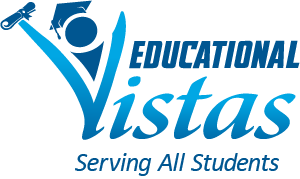Coming Challenges of a New P-6-8 Science
Curriculum & Testing
This spring NYS grade 8 science testing concludes with the form used for many years. A new grade 8 science test will be implemented in the spring of 2024 which will contain multiple-choice and short-(written) responses. In addition, intermediate-grade science INTERVENTIONS prepared by SED are designed to be embedded into instruction and can be offered any time during the school year, dependent on when teachers cover the particular Learning Standards assessed. Prior to taking the new science test, eighth grades must show evidence that they completed all of the four investigations. While rubrics are prepared for scoring the investigations, these scores will not be used in calculating student scores for the new science tests.
Review of Challenges Based on 2022 Science Results
In examining the 2022 results of the NYS grade 8 science testing, there were numerous areas of challenge identified on each of the three parts of the test. Student performance on the multiple-choice portion of the test showed immense challenges with living environment and physical setting. There was greater student challenge with the written (short-response) section of the test in which students scored were challenged in the following: living environment (addressing variables, equations, and diagrams) and physical setting (addressing map plotting). In the third part of the test which focused on student performance in three stations, student faired better while having difficulty with determining values, extrapolating, and comparing calculations. This being said; there is a great deal to do in implementing the new P-12 Science Standards and grade 8 science test.
Science Curriculum
Intermediate grades are now faced with developing a science curriculum in sync with the new science standards and testing which is guided by a new emphasis; PERFORMANCE. Not only will the investigations have to be fitted into a curriculum, but also additional instructional units will need to be created to address the standards in a fulsome manner.
Investigations
The four required Investigations for Intermediate-level Science and the primary performance expectations measured by each are:
- Structures and Properties of Matter: All Mixed Up (PE: MS-PS1-8)
- Energy: Cool It! (PE: MS-PS3-4)
- Weather and Climate: Air Mass Matters (MS-ESS2-5)
- Structure Function and Information Processing: It’s Alive? (MS-LS1-1)
The investigations will be implemented in good stead; however, an examination of sample written questions on the new test proved to be very challenging. Completion of the investigations will prepare students in responding properly to a portion of the items in the new test, but the remainder of the test will be difficult for a number of students due to strong emphasis on reasoning, reading comprehension/vocabulary, and writing responses.
While there is considerable emphasis in the Investigations resting squarely on reading and scientific vocabulary, there is a greater challenge featured in the sample, grade 5 written test. With the Investigations providing the real nature of using science, the written test will include a higher degree of reading challenge in understanding science texts and responding to related questions. SED has promised to help with resources.
As discussed in a previous piece on preparing to meet NYS science challenges P-5, this will call for a collaborative/integrative action within all subject areas. This could begin with a selection of science-based texts to meet the non-fiction dimension of reading at all grades and math support in addressing measurement, as well as art and music. A large factor undergirding this challenge is TIME; hopefully it will be made available for curriculum modification to support implementation of new science standards.
 Dr. Bruce H. Crowder is a senior researcher for Educational Vistas, Inc. His work is primarily focused on creating pathways for deeper learning for all students through student performance and a dynamic curriculum replete with strategic teaching. Dr. Crowder may be reached at bcrowder@edvistas.com
Dr. Bruce H. Crowder is a senior researcher for Educational Vistas, Inc. His work is primarily focused on creating pathways for deeper learning for all students through student performance and a dynamic curriculum replete with strategic teaching. Dr. Crowder may be reached at bcrowder@edvistas.com


